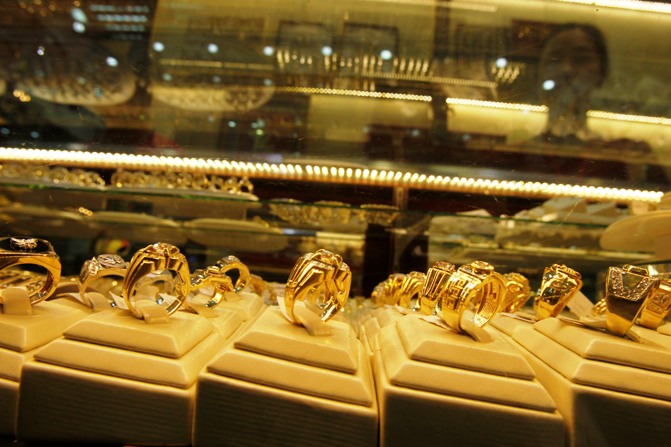 | « Back to article | Print this article |
India to retain gold import curbs despite easing trade gap
India will keep a tight leash on gold imports despite a recent improvement in its trade deficit and lobbying by a bullion industry struggling with high premiums and a supply crunch.
The government is worried the trade gap could worsen again and the currency could weaken as the US Federal Reserve looks set to start tapering its economic stimulus soon.
"There is no proposal to relax restrictions on gold imports as of now," said a top finance ministry official who is part of the team deciding on gold import restrictions.
He declined to be named as he is not authorised to speak to the media.
"The question has not arisen as a US decision on tapering its monetary stimulus could come at any time (and) that could have severe implications for the rupee."
Click NEXT to read further. . .
India to retain gold import curbs despite easing trade gap
The Indian rupee hit a record low in late August on concerns over funding of the record trade gap, and capital outflows prompted by the Fed signalling that it would soon begin rolling back its $85 billion monthly bond purchases.
The Indian government and the central bank issued a series of curbs on imports of gold -- the second-most expensive item on India's import bill -- hoping to ease the pressure on the currency.
The import duty on gold was hiked to a record 10 per cent, and import quantity was tied to sagging exports, leaving the market short on supplies.
Gold imports dropped to 24 tonnes in October from a record 162 tonnes in May, helping ease the current account deficit.
The rupee has also recovered about 10 per cent from its record lows.
Click NEXT to read further. . .
India to retain gold import curbs despite easing trade gap
That has prompted the gold industry in India to lobby the government on rolling back its tough rules.
"Now since the CAD is under control, we are asking them to remove the 80/20 rule because any curbs will not help the industry," said Haresh Soni, chairman of the All India Gems and Jewellery Trade Federation, which represents more than 300,000 jewellers.
The 80/20 rule dictates that 20 percent of all gold imports have to be re-exported.
"We are also asking the government to reduce import duty to 2 per cent as smuggling has increased," Soni said.
Stung by the tough rules imposed this year, Indian dealers and individual customers have been fanning out across Asia to buy gold and sneak it back into the country.
Click NEXT to read further. . .
India to retain gold import curbs despite easing trade gap
But some analysts said the rules should remain in place.
"We should not be going for an easing of restrictions on gold imports at this point in time. I would wait to see if gold imports decline on a sustainable basis," said Madan Sabnavis, chief economist at local ratings agency CARE Ratings.
India will hold a general election by May, which has added to speculation that the government may ease the rules to appease some sections of the public.
"Even from an elections point of view, if the government wants to ease restrictions, they are still three or four months away," said the finance ministry source.
Another official involved in making gold policy said the central bank and government should wait longer to see the impact of the restrictions.
"Indian importers have never been subject to restrictions and that is why they are finding this very painful.
“We have just seen the impact for one quarter, we should wait till March at least to understand the full impact," said the policymaker.
(Additional reporting by Suvashree D Choudhury in Mumbai and A Ananthalakshmi in Singapore)

© Copyright 2024 Reuters Limited. All rights reserved. Republication or redistribution of Reuters content, including by framing or similar means, is expressly prohibited without the prior written consent of Reuters. Reuters shall not be liable for any errors or delays in the content, or for any actions taken in reliance thereon.


